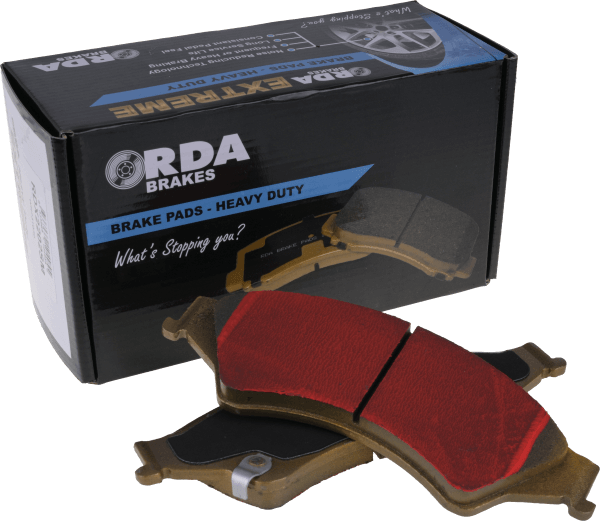RDA Brakes also manufacture a full range of brake drums, from small passenger vehicles to light commercial.
RDA’s brake drums also incorporate features that you would see from OEM manufactured drums like bearings and ABS Rings as standard.
Our standard replacement drums are finished with RDA’s GEN 3 Anti-Rust coating which increases surface rust resistance on non braking areas.
This corrosion resistant coating provides long-lasting protection after fitting, ensuring components continue to look good and remain rust-free. The corrosion resistant coating means the drums are not covered in oil that requires removal using a brake cleaning product, which in turn costs time and materials.
- Heat tempered
- Direct replacement
- 12 Months or 20,000km warranty
- Anti-rust corrosion resistant coating
- 100% CNC machined for superior balance, reduces vibration & abnormal wear
How often should drums be serviced or replaced?
It’s recommended that you have each brake drum inspected annually or every 20,000 kilometres, particularly if your drum brakes experience daily use or rough roads. A regular check helps identify thinning brake shoes, corrosion, or scoring before they escalate. RDA Brakes advises following the manufacturer’s timetable to minimise safety risks and repair expenses. Maintaining proper adjustments and cleaning prolongs component life while sustaining dependable stopping power. Routine care also ensures you avoid sudden failures, keeping your daily commute or heavy load driving smoother and safer.
What are the signs that brake drums need replacement?
Screeching or grinding often indicates worn shoes or damage within the drum brakes’ assembly. Other warning signs include vibrations underfoot, reduced pedal firmness, or an uneven feel. Corrosion around the backing plate can also undermine performance, especially if a brake shoe has thinned excessively. Inspecting for deep scoring or rust inside the drum helps catch issues early. RDA Brakes technicians note that ignoring these cues risk further damage to nearby parts. Prompt attention ensures your system remains stable, prolonging component life and providing consistent deceleration during daily drives.
Are these types of brakes still commonly used?
Yes, drum brakes remain standard in certain segments, especially for commercial vans and smaller vehicles. Many older models continue using them due to affordability and simpler maintenance. We are also seeing drum brakes fitted to the rear of many electric vehicles to support the braking system on a much heavier drivetrain. A typical example is the trailer with an electric drum configuration, popular among owners seeking reliable braking without upgrading to disc systems. Such setups can handle moderate loads and reduce costs compared to more advanced components. RDA Brakes Service Centres continue to stock durable parts for these designs, ensuring drivers still benefit from consistent performance in everyday or light towing applications.
Can drum brakes be converted to disc brakes?
Yes, you can replace drum setups with discs by installing specialised kits designed for your vehicle’s type. This swap usually includes rotors, callipers, brackets, and relevant hardware. Such conversions deliver enhanced heat dissipation, making them a popular upgrade for drivers seeking improved handling. However, professional advice is crucial, as incorrectly fitting or sizing components can compromise safety. RDA Brakes Service Centres suggest verifying warranty details and road regulations before proceeding. With the right expertise, converting from drum to disc can provide more efficient, reliable stopping power.
Related Products

RDA Brakes Extreme Brake Pads are a heavy duty copper free, dense semi metallic pad designed specifically for frequent or…